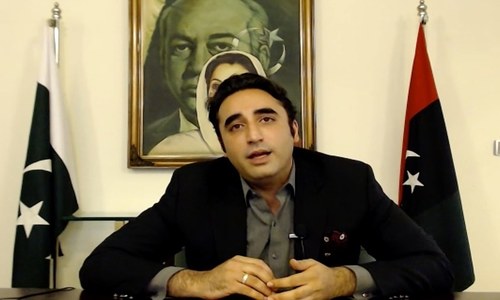IMF acknowledges Pakistan’s response to pandemic

ISLAMABAD: The International Monetary Fund (IMF) on Monday noted the rapid pace at which Covid-19 has been spreading in Pakistan and acknowledged the Rs1.2 trillion relief package announced by the government.
“Covid-19 has been spreading rapidly in the past month in Pakistan, with 4,489 confirmed cases claiming 63 deaths, as of April 9”, the IMF said in its new publication Policy Tracker of its 193 member states.
The fund said both the federal and provincial governments, in response, have implemented a range of measures to delay and contain the spread of the virus. These included quarantining more than three thousand travelers from Iran, closing borders with neighboring countries, international travel restrictions, school closures, social distancing measures, and lockdowns in cities and provinces across the country.
Pakistan army troops were deployed starting March 23, to help provincial governments in their measures to contain the spread of virus.
On the fiscal side, authorities announced a relief package worth Rs1.2tr on Mar 24. This, the IMF said, included an elimination of the import duties on imports of emergency health equipment, relief to daily-wage workers worth Rs200 billion, followed by Rs150bn of cash transfers to low-income families, Rs100bn accelerated tax refunds to the export industry and Rs100bn financial support to small and medium enterprises.
The economic package also earmarked resources for an accelerated procurement of wheat at Rs280bn, Rs50bn financial support to utility stores, Rs70bn relief in fuel prices, Rs15bn support for health and food supplies and Rs110bn electricity bill payments relief. This also included Rs100bn for an emergency relief fund and Rs25bn transfer to the NDMA for the purchase of necessary equipment.
On the monetary and macro-financial side, the State Bank of Pakistan (SBP) has responded to the crisis by cutting the policy rate twice by a cumulative 225 basis points to 11pc in less than two weeks in March.
On March 17, the SBP announced two refinancing schemes. First, TERF worth Rs100bn to stimulate investment in new manufacturing plants and machinery at 7pc and the second, RFCC worth Rs5bn to support hospitals.
Published in Dawn, April 14th, 2020














































